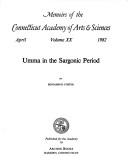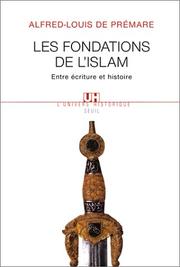| Listing 1 - 10 of 14 | << page >> |
Sort by
|
Book
ISBN: 9781934309391 1934309397 Year: 2011 Volume: 14 Publisher: Bethesda, Md. : CDL Press,
Abstract | Keywords | Export | Availability | Bookmark
 Loading...
Loading...Choose an application
- Reference Manager
- EndNote
- RefWorks (Direct export to RefWorks)
Economic documents dealing with the administration and distribution of barley, emmer, flour, seed, malt, bread, and wheat in Sumer in the middle of the third millennium BC
Book
ISBN: 9781575063775 1575063778 1575063905 1575063786 9781575063782 9781575063898 9781575063904 1575063891 1646021835 9781646021833 Year: 2021 Volume: 27 Publisher: University Park, PA
Abstract | Keywords | Export | Availability | Bookmark
 Loading...
Loading...Choose an application
- Reference Manager
- EndNote
- RefWorks (Direct export to RefWorks)
The period between the accession of Nabonasser, in 747 B.C.E., and the accession of Nabopolasser, in 625 B.C.E., was a period of significant stability for the city of Babylon, due in large part to the projection of Assyrian power in the region. During this transitional period, increased economic activity throughout Babylonia resulted in an increase in the amount of written evidence. And the legal and administrative texts that have thus far come to light are, in the words of J. A. Brinkman, “a mine of information for researchers interested in demography, social institutions, economic history, and even ancient technology.” In this volume, John Nielsen provides an index of the personal names found on texts from this period. As such, the index is a valuable supplement to the Prosopography of the Neo-Assyrian Empire project (Helsinki). Information presented in the book is modeled on the Helsinki project’s publications. The index includes comprehensive cross-references to the CAD, Stamm’s Namengebung, the Helsinki PNAE indexes, Hölscher’s Personennamen, and Knut Tallqvist’s Neubabylonisch Namenbuch. Nielsen’s prosopographical index adds a major new resource to the study of the Neo-Babylonian period.
Sumerian language --- Umma (Extinct city) --- History --- Harvard Semitic Museum. --- Sumerian language -- Irag -- Umma (Extinct city) -- Texts. --- Umma (Extinct city) -- History -- Sources. --- Yale Babylonian Collection. --- Middle Eastern Languages & Literatures --- Languages & Literatures --- Names, Personal --- Akkadian --- Harvard University. --- Yale University. --- Chokha, Tell (Iraq) --- Djokha (Iraq) --- Jokha, Tell (Iraq) --- Tall Jokha (Iraq) --- Tell Chokha (Iraq) --- Tell Jokha (Iraq) --- Umma (Ancient city) --- Anthroponomy --- Baby names --- Christian names --- Family names --- Forenames --- Names of families --- Names of persons --- Personal names --- Surnames --- Names --- Onomastics --- Akkadian. --- Iraq --- Antiquities --- Akkadian personal names --- Names, Personal - Akkadian --- Sumerian language - Iraq - Umma (Extinct city) - Texts --- Umma (Extinct city) - History - Sources
Book
ISBN: 9781934309490 1934309494 Year: 2013 Volume: 23 Publisher: Bethesda, Md. : CDL Press,
Abstract | Keywords | Export | Availability | Bookmark
 Loading...
Loading...Choose an application
- Reference Manager
- EndNote
- RefWorks (Direct export to RefWorks)
Akkadian language --- Sumerian language --- Cornell University. --- Adab (Extinct city) --- Umma (Extinct city) --- Texts --- Akkadian language - Texts --- Sumerian language - Texts

ISBN: 0208019510 9780208019516 Year: 1982 Volume: 20 Publisher: Hamden Archon books
Abstract | Keywords | Export | Availability | Bookmark
 Loading...
Loading...Choose an application
- Reference Manager
- EndNote
- RefWorks (Direct export to RefWorks)
Sumerian language --- Texts --- Umma (Extinct city) --- Iraq --- History --- Sources --- -Texts --- -Chokha, Tell (Iraq) --- Djokha (Iraq) --- Jokha, Tell (Iraq) --- Tall Jokha (Iraq) --- Tell Chokha (Iraq) --- Tell Jokha (Iraq) --- Umma (Ancient city) --- -Sources. --- -Sources --- Antiquities --- Texts. --- Sources. --- -History --- Chokha, Tell (Iraq) --- Irak --- Rāfidayn, Bilād --- Bilād al-Rāfidayn --- Republic of Iraq --- Jumhuriyah al Iraqiyah --- Sumerian language - Texts --- Umma (Extinct city) - History - Sources --- Iraq - History - To 634 - Sources
Book
ISBN: 0890030596 9780890030592 Year: 1983 Volume: 2/1 2/1
Abstract | Keywords | Export | Availability | Bookmark
 Loading...
Loading...Choose an application
- Reference Manager
- EndNote
- RefWorks (Direct export to RefWorks)
Cuneiform inscriptions, Sumerian. --- Sumerians --- History --- Sources. --- Lagash (Extinct city) --- Umma (Extinct city) --- -Lagash (Extinct city) --- -Umma (Extinct city) --- -Chokha, Tell (Iraq) --- Djokha (Iraq) --- Jokha, Tell (Iraq) --- Tall Jokha (Iraq) --- Tell Chokha (Iraq) --- Tell Jokha (Iraq) --- Umma (Ancient city) --- Hiba, Tall (Iraq) --- Lagash (Ancient city) --- Shirpurla (Extinct city) --- Tall al-Hiba (Iraq) --- Tell al-Hiba (Iraq) --- Cuneiform inscriptions, Sumerian --- Accadians (Sumerians) --- Akkadians (Sumerians) --- Civilization, Sumerian --- Civilization, Assyro-Babylonian --- Ethnology --- Sumerian cuneiform inscriptions --- History&delete& --- Sources --- Babylonia --- Chokha, Tell (Iraq) --- Iraq --- Vavilonii︠a︡ --- Bavel --- Bābil --- Babylonien --- Sumer --- Antiquities --- Sumerians - History - Sources --- Lagash (Extinct city) - History - Sources --- Umma (Extinct city) - History - Sources --- Babylonia - History - Sources

ISBN: 2020374943 9782020374941 Year: 2002 Publisher: Paris : Editions du Seuil,
Abstract | Keywords | Export | Availability | Bookmark
 Loading...
Loading...Choose an application
- Reference Manager
- EndNote
- RefWorks (Direct export to RefWorks)
Islam --- History --- Sources --- Historiography --- Origin --- Histoire --- Historiographie --- Origines --- History. --- #KVHA:Religie --- #KVHA:Islam --- 297 --- -Mohammedanism --- Muhammadanism --- Muslimism --- Mussulmanism --- Religions --- Muslims --- Islam. Mohammedanisme --- -Islam. Mohammedanisme --- Mohammedanism --- Sources. --- Islam - History. --- Islam - History - Sources. --- Coran --- Hadith --- Proche Orient --- Critique rédactionnelle --- Origine --- Histoire religieuse --- Moyen-Age --- islam --- Muhammad --- musulmans --- la umma islamique --- la umma de Muhammad --- le proche-Orient --- le corpus coranique --- le Hadith --- théologie --- la religion islamique
Book
ISBN: 0252002040 9780252002045 Year: 1972 Publisher: Urbana University of Illinois press
Abstract | Keywords | Export | Availability | Bookmark
 Loading...
Loading...Choose an application
- Reference Manager
- EndNote
- RefWorks (Direct export to RefWorks)
Sumerian language --- -Texts --- Babylonia --- -Drehem (Extinct city) --- Umma (Extinct city) --- Chokha, Tell (Iraq) --- Djokha (Iraq) --- Jokha, Tell (Iraq) --- Tall Jokha (Iraq) --- Tell Chokha (Iraq) --- Tell Jokha (Iraq) --- Umma (Ancient city) --- Iraq --- Durayhim (Extinct city) --- Puzurish-Dagan (Extinct city) --- Economic conditions --- Antiquities --- Texts. --- Texts --- Drehem (Extinct city) --- Vavilonii︠a︡ --- Bavel --- Bābil --- Babylonien --- Sumer --- Economic conditions.
Book
ISSN: 03904253 ISBN: 8875973016 9788875973018 Year: 2000 Volume: 21 Publisher: Roma : Bonsignori,
Abstract | Keywords | Export | Availability | Bookmark
 Loading...
Loading...Choose an application
- Reference Manager
- EndNote
- RefWorks (Direct export to RefWorks)
Book
ISBN: 9781934309124 1934309125 1934309400 9781934309407 Year: 2012 Volume: 13 Publisher: Bethesda, Md. : CDL Press,
Abstract | Keywords | Export | Availability | Bookmark
 Loading...
Loading...Choose an application
- Reference Manager
- EndNote
- RefWorks (Direct export to RefWorks)
Bismaya (Iraq) --- Cuneiform tablets --- Akkadian language --- Sumerian language --- Sargon --- Naram-Sin, --- Cornell University. --- Adab (Extinct city) --- Babylonia --- Antiquities. --- Tablets, Cuneiform --- Clay tablets --- Cuneiform writing --- Sargon of Agade --- Naramsîn, --- Cornell University --- Bismya (Iraq) --- Iraq --- Antiquities --- Texts --- Cuneiform tablets - Iraq - Adab (Extinct city) --- Akkadian language - Texts --- Sumerian language - Texts --- Sargon - I, - King of Agade --- Naram-Sin, - King of Babylonia, - approximately 2254 B.C.-approximately 2218 B.C. --- Babylonia - Antiquities --- Bismaya (Iraq) - Antiquities --- Babylonia - Antiquities. --- -Umma (Extinct city) --- Isin (Extinct city) --- Umma (Extinct city)
Book
ISBN: 9780674987838 0674987837 Year: 2019 Publisher: Cambridge The Belknap Press, Harvard University Press
Abstract | Keywords | Export | Availability | Bookmark
 Loading...
Loading...Choose an application
- Reference Manager
- EndNote
- RefWorks (Direct export to RefWorks)
The Arab Spring precipitated a crisis in political Islam. In Egypt Islamists have been crushed. In Turkey they have descended into authoritarianism. In Tunisia they govern but without the label of "political Islam." Andrew March explores how, before this crisis, Islamists developed a unique theory of popular sovereignty, one that promised to determine the future of democracy in the Middle East. This began with the claim of divine sovereignty, the demand to restore the sharīʻa in modern societies. But prominent theorists of political Islam also advanced another principle, the Quranic notion that God's authority on earth rests not with sultans or with scholars' interpretation of written law but with the entirety of the Muslim people, the umma. Drawing on this argument, utopian theorists such as Abū'l-Aʻlā Mawdūdī and Sayyid Quṭb released into the intellectual bloodstream the doctrine of the caliphate of man: while God is sovereign, He has appointed the multitude of believers as His vicegerent. The Caliphate of Man argues that the doctrine of the universal human caliphate underpins a specific democratic theory, a kind of Islamic republic of virtue in which the people have authority over the government and religious leaders. But is this an ideal regime destined to survive only as theory?--
Islam and politics --- Islam and state --- Ummah (Islam) --- Caliphate --- Islamic fundamentalism --- Islamic countries --- Politics and government --- Fundamentalism, Islamic --- Islamism --- Islam --- Religious fundamentalism --- Khalifat --- Khilāfah --- Khilafat --- Caliphs --- Kings and rulers --- Mosque and state --- State and Islam --- State, The --- Politics and Islam --- Political science --- Umma (Islam) --- Political aspects --- Politics and government. --- Political philosophy. Social philosophy --- Islamic countries - Politics and government
| Listing 1 - 10 of 14 | << page >> |
Sort by
|

 Search
Search Feedback
Feedback About UniCat
About UniCat  Help
Help News
News